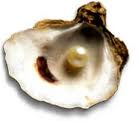A classic is a book that has never finished saying what it has to say. ~Italo Calvino, The Literature Machine
What truly makes a classic a classic? For me, it's a book that I can still relate to, one that still holds relevance, and as Calvino says so well, still has something to say. A year or so ago, we chose "The House of the Seven Gables" for our St. Francis book group. After reading it, we all agreed it hadn't stood the test of time—at least for us.
Still, I reminded myself one of the great gifts of belonging to a book group is reading or re-reading a book that we would not otherwise choose on our own. Those of us who are inveterate book group members feel compelled to read the chosen selection no matter how painful the process. And for me, the pressure was greater because I volunteered to co-lead the discussion of "The Scarlet Letter."
In my second reading of Hawthorne's classic, I discovered the following:
Modern day reading has changed my reading experience expectations.
At first, I fretted over the slow movement of the book, the long passages, and antiquated language, wishing he would just get to the point! I can only liken it to the experience of watching some of my favorite old movies that, when revisited, move much too slowly for me. I realize that I've bought into the world of instant gratification. Newer novels, even good ones, "feed" us faster.Getting the most from a classic requires slower and more attentive reading.
When I forced myself to read more carefully and thoughtfully, I found great beauty in much of Hawthorne's text. Consider these lines, "…the scarlet letter ceased to be a stigma which attracted the world's scorn and bitterness, and became a type of something to be to be sorrowed over, and looked upon with awe, yet with reverence, too."
Life experience affects my view much more than I realized.
The premise choosing this book was to see how reading this book later in life might differ from our high school experience. Several members of the group spoke about how their first reading focused entirely on Hester Prynne and how her name remained imprinted in their memories yet they didn't remember any of the other characters. For me, I had a greater appreciation for her strength as a character. As a teenager, I mainly saw her as a victim and felt the injustice inflicted upon her. I realized my view of women in general has changed greatly since the '50's. Clifton Fadiman says it well in his quote, "When you re-read a classic you do not see in the book more than you did before. You see more in you than there was before."
While no one is overtly placed in a pillory or made to stand with a sign signifying their shame, we still do expect public shaming to take place. Perhaps the Puritans were more honest in doing it as openly as they did. Consider how we expect our celebrities to publicly expose their personal extramarital affairs, demand details, and expect an apology. Or the shame teens heap on one another with pictures and comments on Facebook. We call it bullying and it is, but it's also public shaming and shunning. Presented more graphically and in modern language, adultery, pride, gender issues, and forbidden love still sell books!
The use of symbolism and irony have an ageless quality that continues to resonate with readers.
The use of symbolism and irony have an ageless quality that continues to resonate with readers.
 Did Hawthorne choose Pearl as Hester's daughters name to draw a parallel to the sacrifice an oyster undertakes to make a pearl? Consider his masterful use of irony as manifested how the ambiguity of sin was expressed in the loveliness of the embroidered "A", or how she chose to remain in the village and continue to wear the letter long after her transgression was forgotten.
Did Hawthorne choose Pearl as Hester's daughters name to draw a parallel to the sacrifice an oyster undertakes to make a pearl? Consider his masterful use of irony as manifested how the ambiguity of sin was expressed in the loveliness of the embroidered "A", or how she chose to remain in the village and continue to wear the letter long after her transgression was forgotten.There's a Chinese saying, "To read a book for the first time is to make an acquaintance with a new friend; to read it for a second time is to meet an old one."
These are my top ten, but you can view more at Top 100 Best Novels Of All Time http://wealthwisdomandsuccess.com/.
Here are ten other classics I'd recommend:
1. To Kill a Mocking Bird by Harper Lee
2. East of Eden by John Steinbeck
3. The Great Gatsby by F. Scott Fitzgerald
4. Catcher in the Rye by J.D. Salinger
5. Alice's Adventures in Wonderland by Lewis Carroll
6. Moby Dick by Herman Melville
7. 1984 by George Orwell
8. Robinson Crusoe by Daniel Defoe
9. Rebecca by Daphne du Maurier
10. All the King's Men by Robert Penn Warren
These are my top ten, but you can view more at Top 100 Best Novels Of All Time http://wealthwisdomandsuccess.com/.
Let me know which are your favorite classics!
Embrace a classic, and remember, "Books let us into their souls and lay open to us the secrets of our own." William Hazlitt



